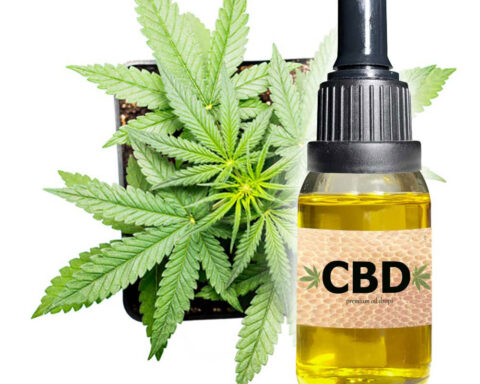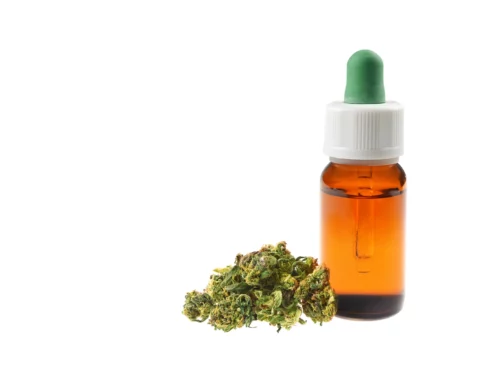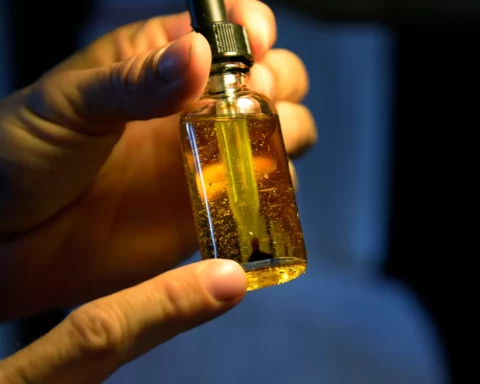CBD products are formulated using primary components of the hemp plant, cannabidiol (CBD), and tetrahydrocannabinol (THC). During the legalization of the hemp plant and CBD products, the primary focus was on THC concentration. According to the Food and Drug Administration (FDA), THC levels should be within the 0.3% limit for consumer safety. There are three types of CBD; isolate, broad-spectrum and full spectrum. Full-spectrum CBD contains all the beneficial elements of the hemp plant, including THC. Contrastingly, broad-spectrum has all the elements of the hemp plant except THC. As for isolate, it’s the pure form of CBD, with no other cannabinoids. The main concern for consumers is if there is THC in CBD.
What is THC?
THC is a primary compound found in the cannabis plant. According to medical experts, it is responsible for making consumers “high.” When the farm bill in 2018 legalized the growth of cannabis in the USA, it gave all mandates on the legality of CBD products to the state level. According to the FDA, they only allow manufacturers to develop CBD products with THC levels within 0.3%, and any products exceeding these levels are considered illegal. There are three types of CBD oil; isolates, broad-spectrum and full-spectrum.
Full-Spectrum CBD Oil
Full-spectrum CBD oil contains all the natural elements of the cannabis plant. They include;
Cannabinoids
Cannabinoids are the primary elements of the hemp plant. According to research, there are more than 100 cannabinoids, including THC and CBD. Research has linked these compounds with various wellness benefits, such as relieving stress and anxiety. As more research continues on CBD products, more psychoactive and therapeutic effects are established. The World Health Organization (WHO) has also recognized various benefits of CBD products. However, it has also outlined the potential risks of using these products. Unlike CBD, which causes less or no harm, THC has been linked to various intoxicating effects by various research institutions.
Terpenes
Although people taking CBD products in full or broad-spectrum are likely to be exposed to the side effects of THC, they also benefit from various advantages such as terpenes. According to research, the cannabis plant has over 150 terpenes linked to the plant’s fragrance, responsible for the smell. They have also been noted to have various therapeutic benefits and a cooling effect on the body. Terpenes make the body calm by enhancing muscle relaxation after a workout or a long day.
Flavonoids
Unlike terpenes and cannabinoids only found in the hemp plant, flavonoids are found in all plants, including vegetables, fruits, and grains. Research has shown that flavonoids have a similar impact on the body as terpenes, offering anti-inflammatory effects. Although not proven, flavonoids are believed to offer anti-cancer effects. The cannabis plant has over 20 flavonoids with a different positive impact on consumers.
Broad-Spectrum CBD
Unlike full-spectrum CBD, broad-spectrum contains all beneficial elements of the hemp plant except THC. It contains cannabinoids, terpenes, and flavonoids, with various wellness impacts on consumers. Some include relieving pain, promoting skin health, and reducing anxiety.
Isolate CBD
Isolate is the pure form of CBD. It is void of all elements (terpenes and flavonoids), including THC. If you wish to avoid intake of THC, isolate CBD oil is the best option. Most companies manufacturing isolate products offer them in natural form without adding flavors.
Factors to Consider when buying CBD Oil with THC
Avoiding THC in CBD products is nearly impossible since it’s the second primary element of the cannabis plant. Although broad spectrum and isolate CBD products might have some THC levels, they are not as high as the full spectrum. For consumers’ safety against taking too much THC, the FDA restricts THC levels within 0.3%. Some of the side effects of THC include increased heart rate, red eyes, memory loss, anxiety, and dry mouth. There has been a common trend of misinformation among various CBD brands since they label inaccurate lab results. Therefore, before buying CBD oil, consider a reputable brand. Here are some considerations to focus on while going for CBD products with THC.
Assess the Brand’s Reputation
Before buying your CBD oil, in either full-spectrum, broad-spectrum, or isolate form, it’s important to research the brand. Confirm whether the brand has received negative reviews from BBB or warnings from FDA. Also, assess the manufacturing practices to ensure the company uses appropriate methods such as using CO2 to extract useful elements of the hemp.
Assess the Lab Reports
Before buying your CBD oil, confirm whether the brand is using a reputable, certified lab to assess the purity and potency of its products. Also, if it does not provide COAs reports on the website, ensure they are willing to offer when asked. This will help you identify transparent brands committed to consumers’ safety. Also, brands that offer QR codes will help you affirm the lab reports offered online or on the labels.
Conclusion
Evading THC in CBD products might not be easy in tinctures and other forms such as topicals, capsules, vapes, and capsules. However, going for isolate or broad-spectrum will shield you from taking too much of it. Before buying your CBD products, ensure the brand has maintained a good reputation and has all its products assessed for purity and potency using a certified lab.
- WHY CAN DRINKING ALCOHOL TRIGGER ANXIETY? - January 7, 2023
- WHAT IS ORGASMIC MEDITATION? BENEFITS + HOW TO - January 7, 2023
- THE BEST WAYS TO PREVENT WEIGHT GAIN THIS WINTER - January 6, 2023









